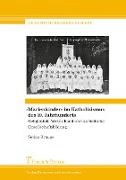- Start
- Dynamics of Social Welfare Psychological Approach
Dynamics of Social Welfare Psychological Approach
Angebote / Angebote:
The study attended to two key questions: First, how do people from different developmental stages, residential settings/ecologies and genders perceive social wellbeing? How does the perception of social wellbeing relate to social capital, system perception and social interest? A total of 360 individuals participated in this study. Among them were 180 males and 180 females belonging to adolescence (15-20 years), young adult (30-40 years) and middle adult (50-65 years) developmental stages. The participants ranged from15 to 65 years (M=33.50, SD= 11.99). They were equally drawn from two-cultural settings: Gorakhpur Region (N=180) and National Capital Region of Delhi (N=180). Adolescent participants were college students. The participants were married or unmarried and employed or unemployed. Majority of the participants belonged to lower middle and upper middle class socio-economic background. The measures used to tap social capital included social equality scale, social reputation scale, social support scale, and interpersonal relationship scale. Perceived constraints scale was used to measure systemic constraints. The measures to tap self-transcendence included encouragement scale (developed by Dagley & Evans, (1992)), generativity scale (developed by McAdams & de St. Aubin, (1992)), and positive social engagement scale (self developed by the author). Social interest, social well-being, personality dispositions and value preference were measured by social interest index (developed by Greever, Tseng & Friedland (1973)), social well-being scale (developed by Keyes, 1998), five factor personality scale (Gosling, Rentfrow, and Swann Jr., 2003) and value preference scale(Schwartz, 1992), respectively. The degree of social capital, strength of interpersonal relationship, perceived constraints of the social system, the extent of perceived self- transcendence, magnitude of social interest, extent of social well-being, value preferences, and personality dispositions have demonstrated significant differences between the rural and urban ecological settings.The male and female participants differed in the degree of social capital, strength of interpersonal relationship, perceived constraints of the system, the extent of perceived self- transcendence, magnitude of social interest, extent of social well-being, value preferences and personality dispositions. The degree of social capital, strength of interpersonal relationship, perceived constraints of the system, the extent of perceived self- transcendence, magnitude of social interest, extent of social well-being, value preferences, and personality dispositions have shown significant differences across the adolescence, young adulthood and middle adulthood stages. In general, all the factors of social interest are positively correlated with the factors of social well-being Value preferences and personality dispositions seemed to be significant moderators of the relationship between social interest and social well-being.Future implications of this study may be in terms of an intervention programme that could be introduced for the promotion of social wellness in the society.The same model could be replicated at the larger and diverse populations across the country and the learning could be incorporated in policy formation for rural and urban regions.
Folgt in ca. 10 Arbeitstagen




